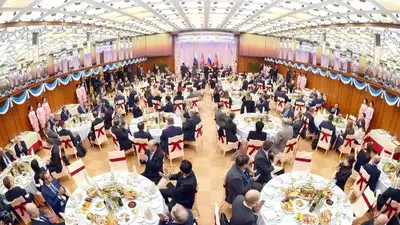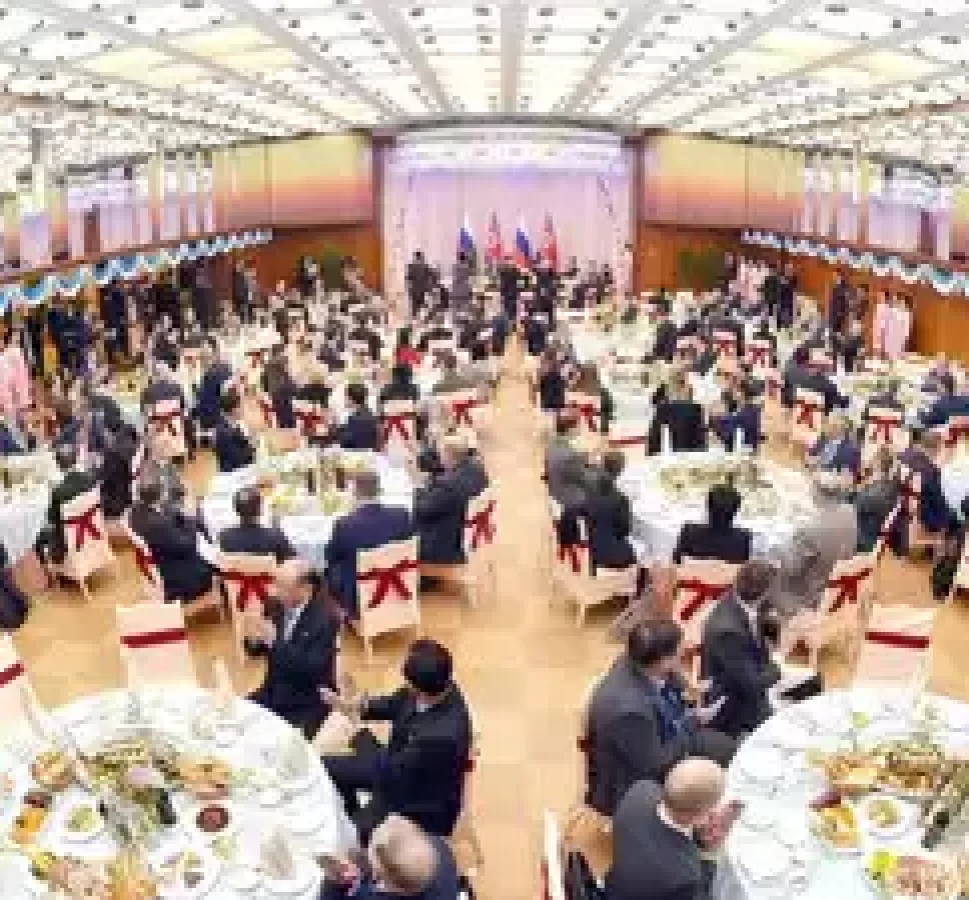
Analysts have warned Pyongyang could expand exports of military equipment to Moscow for its war in Ukraine.
A Russian delegation is visiting North Korea, Pyongyang state media said on Wednesday, as increased cooperation between the two worries Washington and Seoul.
The visit comes about a week after US Secretary of State Antony Blinken said ties between Pyongyang and Moscow were “growing and dangerous” before urging Beijing – North Korea’s principal ally – to rein in the nuclear-armed country.
The delegation – led by Russia’s Natural Resources Minister Alexander Kozlov – arrived in the North Korean capital on Tuesday to discuss “cooperation in the fields of trade, economy, science and technology,” according to the official KCNA agency.
A reception was held at the Koryo Hotel in Pyongyang on Tuesday, during which participants agreed to “further revitalise bilateral relations in all areas and take them to a higher stage,” KCNA detailed.
The historic allies are both subject to international sanctions: Russia for its invasion of Ukraine and North Korea for its nuclear weapons and missile programmes.
South Korea has accused Pyongyang of supplying more than a million artillery shells to Moscow for its war against Ukraine.
North Korea has reportedly benefited in return from Russian expertise in satellite technology military, a major objective of the North Korean regime.
Pyongyang also needs food and humanitarian aid, with the COVID pandemic causing devastating shortages in the country, Fyodor Tertitskiy, an expert in North Korean history and military, told Euronews in September.
Moscow is “eager to develop substantive cooperation in accordance with the agreements reached at the Russia-DPRK summit,” KCNA said Wednesday, using North Korea’s official name.
The state news agency added that a North Korean delegation led by its Minister of Sports and Culture had left for Russia to join a forum in the Russian city of Perm.
Analysts say the latest moves indicate the two countries want to emphasise their growing alliance, despite criticism from the international community.
The North “could potentially expand its planned trade by exporting war-related goods to Russia,” Ahn Chan-il, a defector-turned-researcher who heads the Global Institute of Korea Studies, told the French news agency AFP.
An impoverished Pyongyang would do so “in exchange for importing food and energy resources,” he added.






